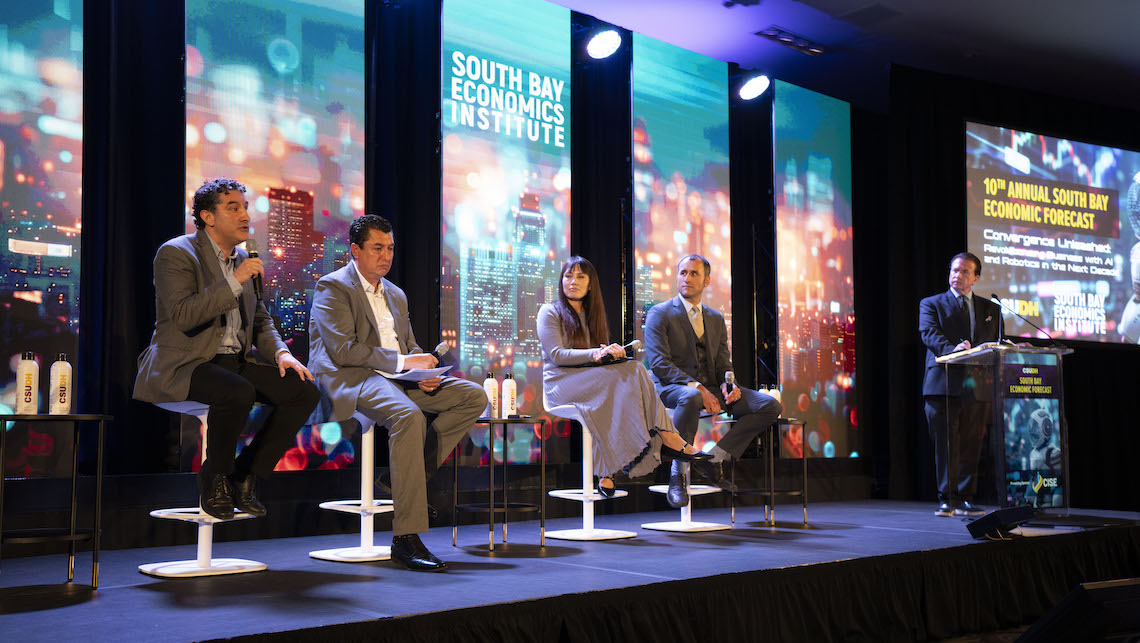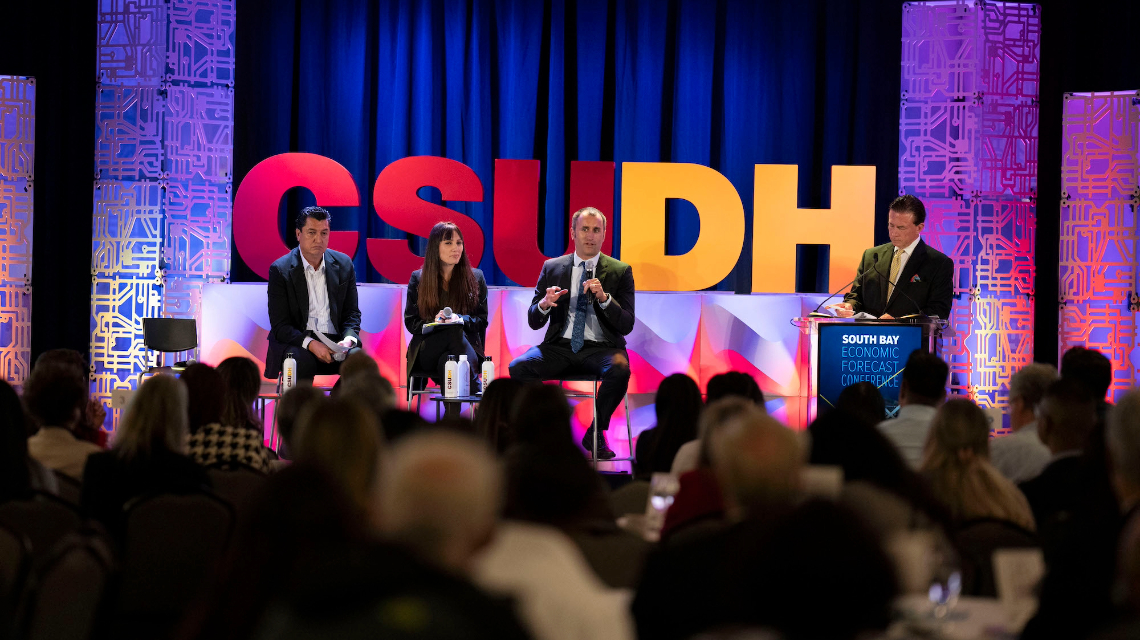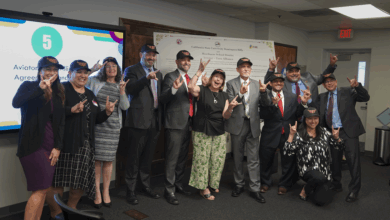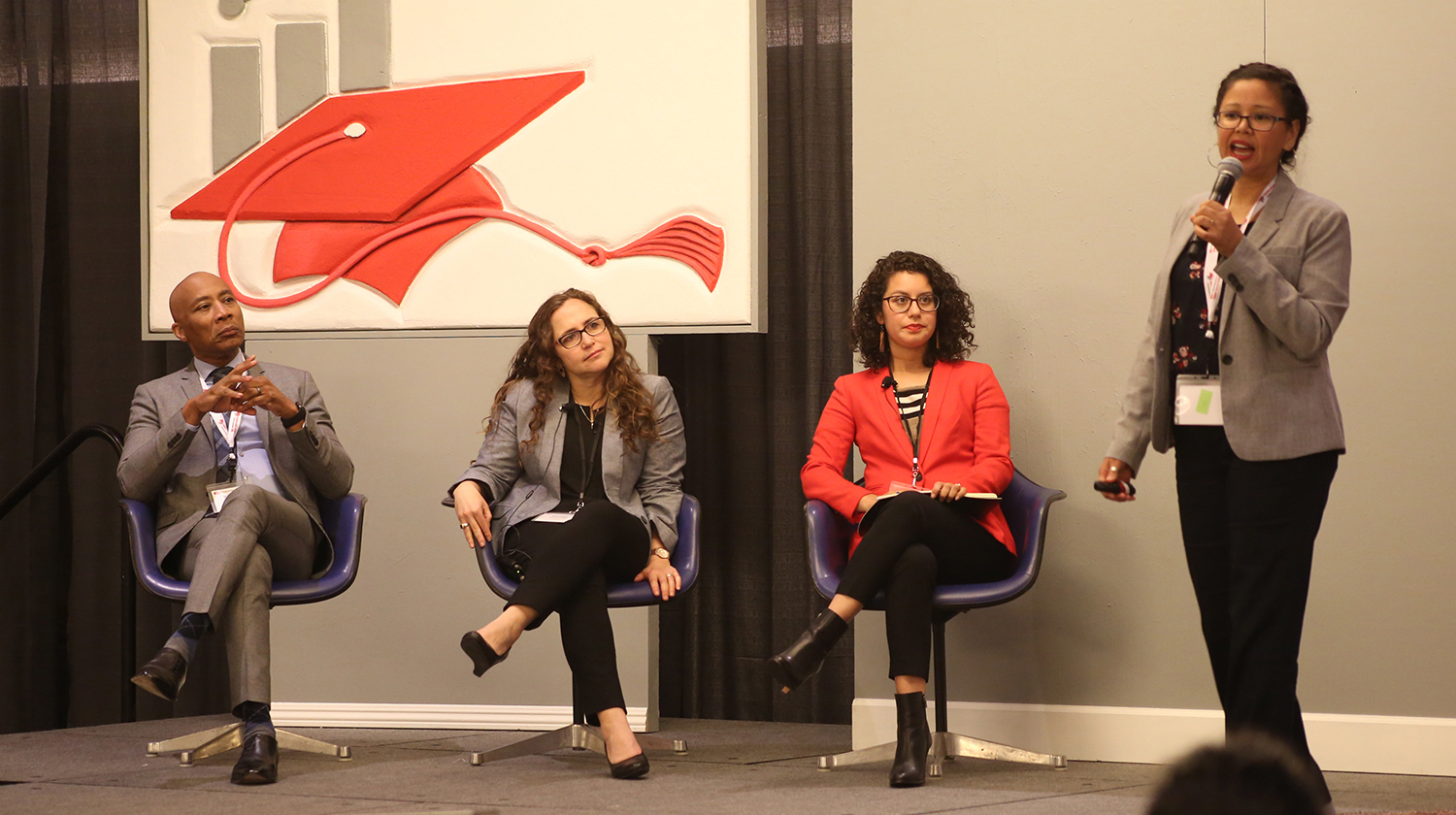
Source: Daily Breeze
Last January, Fynnwin Prager, co-director of the South Bay Economics Institute at Carson’s Cal State Dominguez Hills, issued a report on the current and future state of telecommuting that concluded: “The $1 million question is how do we get more commuters out of their cars and working from home?”
At the time, a global pandemic that would emerge a year later and force people to socially isolate at home, wasn’t foreseen.
But given how major events – including public health disasters – have historically resulted in major societal changes, the Daily Breeze asked Prager about how the coronavirus pandemic may affect not only how we live, but how we work.
The following conversation has been edited for length and clarity.
Daily Breeze: So I’m guessing the answer to the question you posed in the report about increasing the rate of telecommuting would not have been a global pandemic.
Prager: The telecommuting literature is definitely inspired by the possibility of disasters and a lot of my research actually is also in the area of extreme events and disasters, so I just happened to have studied some of those areas.
Still, nobody could have foreseen something like this.
It’s actually very surreal to see all of these elements playing out when you’ve been studying them for years. You think, how might this look in a hypothetical scenario? And then it plays out and it’s even worse than the worst-case scenarios.
What does the pandemic mean for the future of telecommuting?
We’ve clearly seen a massive spike in the amount of people telecommuting, and we would expect that to continue – with the caveat that also a lot of people are not enjoying it.
It’s really hard to balance home and family life, especially when you have kids home from school. It’s also really hard to make sure that your technology is set up right, you have the right internet speed and gizmos like Zoom working at home.
There are good reasons I expect there will be a drop-off in telecommuting once the COVID-19 pandemic passes.
There will be a balancing out.
A lot of the evidence suggests there is kind of a sweet spot of almost part-time telework. So you spend a few days in the office and you have a few days at home.
That balance allows you to get the benefits of telework. There’s definitely a huge amount of positives from working at home, but there’s also a huge amount of positives from working in an office.
All that creativity you get from interpersonal interactions, those water cooler moments, the informal networks that spring up in an office, those can still be achieved, but in a more balanced way.
Will the telecommuting experience during the pandemic help overcome resistance from companies who might have seen it as a disadvantage not to monitor workers’ productivity as closely as they can in an office setting?
The technology is there, the millennial work force is there, the interest is there from the workers’ side to have more flexibility in their work and daily lives.
However, what we saw and was confirmed in other studies, is it’s really managerial and executive resistance that was the thorn in the side of the trend increasing.
I do expect there will be a shift back to the old world if you will, but there will be more telecommuting overall.
How will the pandemic and the need for social distancing indefinitely, in the absence of a coronavirus vaccine, affect how we live and work in the future?
Telecommuting can help to offset many of the biggest economic impacts from the coronavirus outbreak. We won’t see as many big impacts on the economy as much as you would have seen a few decades ago.
Offices are starting to be redesigned so people are sitting 6 feet apart. I’m sure in the interim there’s going to be co-working spaces – I’m sure WeWork and others like them are suffering right now – that are going to have much larger desk spaces to enable people to go work together in those offices.
What about long-term changes on the economy and daily life in the wake of the pandemic?
In terms of economic changes, clearly it’s going to accelerate trends that were already happening like online shopping.
I suspect nations and people in general are going to be much more prepared for future events like this. Taiwan prepared because of SARS a few years ago and saw a lot fewer deaths.
We’re going to see people wearing masks for much longer and they will be taking up occupations out of necessity they wouldn’t have done otherwise.
I definitely think there’s going to be socio-psychological adjustments we will have to make.
But, I would be surprised if we didn’t go back to normal-ish life whenever the restrictions are lifted.








